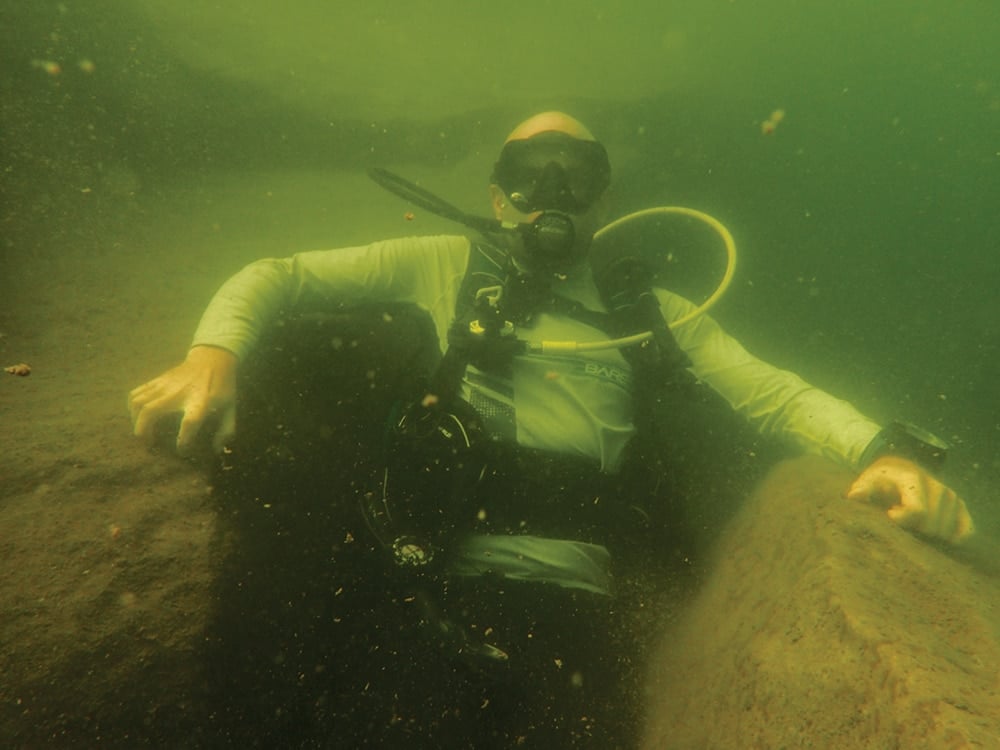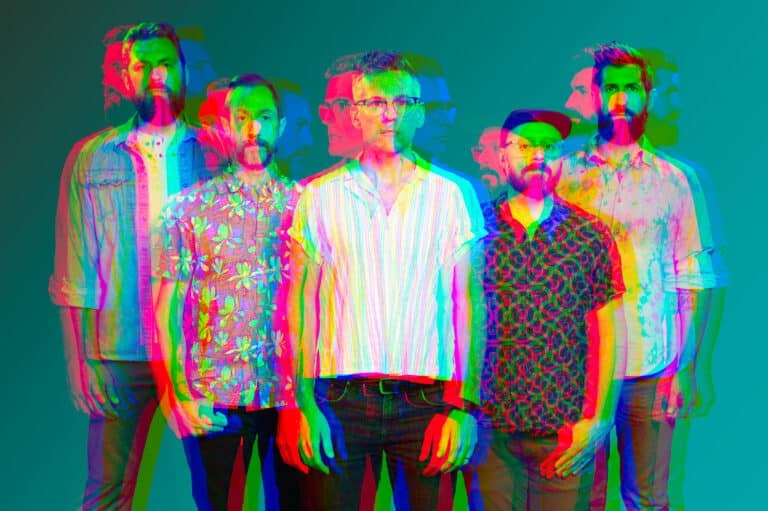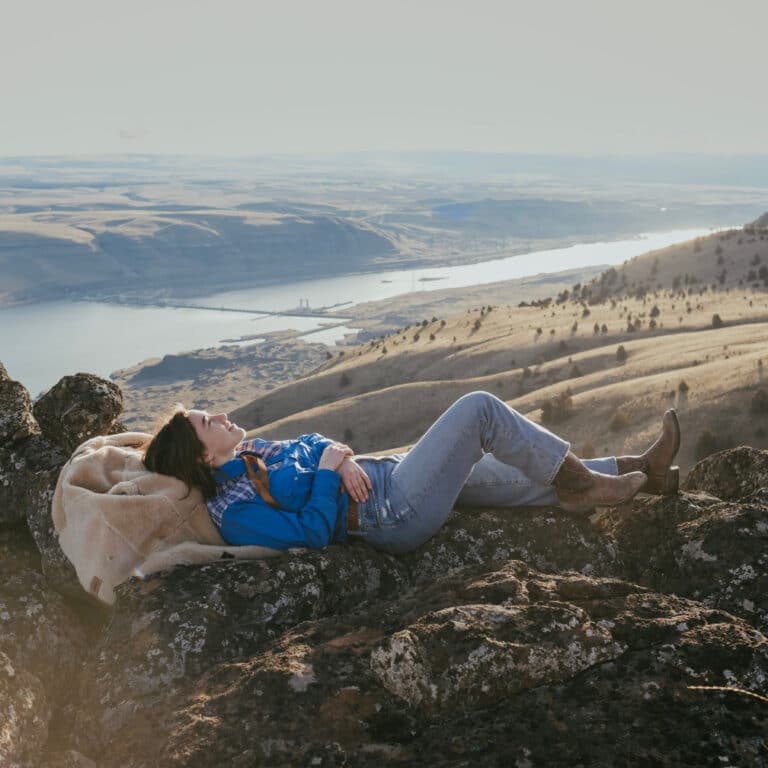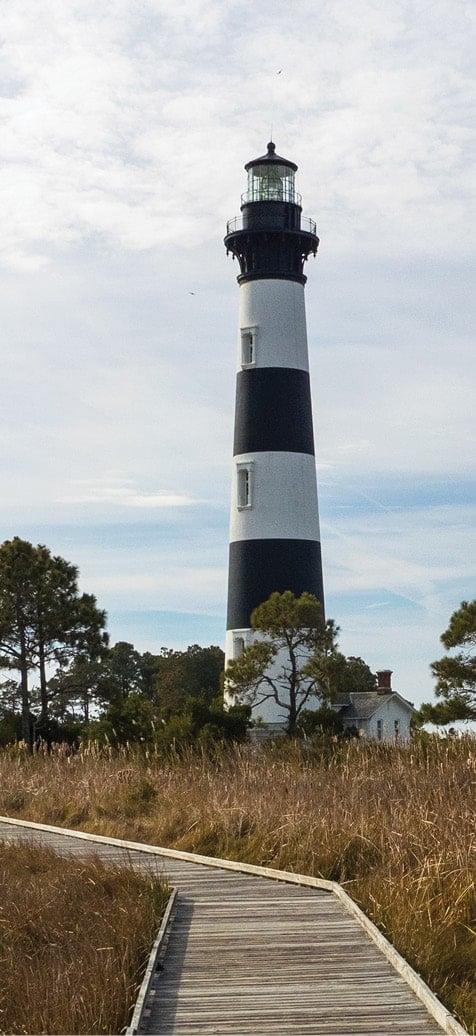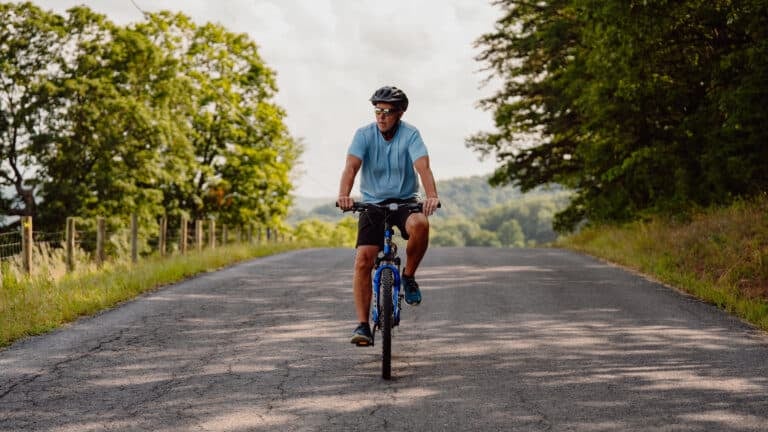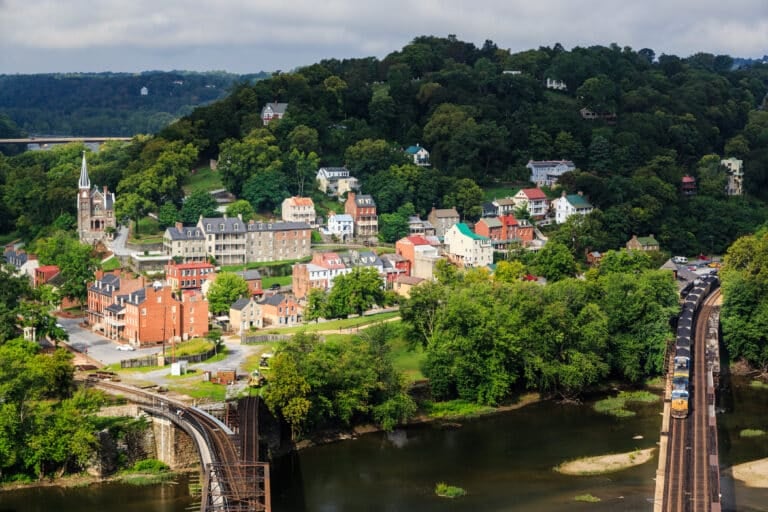Appalachia doesn’t seem like scuba central, but the guys at Sarge’s, a low-key, four-decade dive shop, will show you the best of what’s under West Virginia’s Summersville Lake.
Being a scuba diver in West Virginia is like being a downhill skier in Oklahoma. Most of the time, your gear is likely going to languish in the basement. Perhaps that explains the enduring appeal—and staying power—of Sarge’s Dive Shop on Summersville Lake in Nicolas County. In an area where adventure outfitters come and go, the guys at Sarge’s have been in the business of scuba diving Summersville Lake for 40-some-odd years, offering intrepid, landlocked divers underwater escapades close to home.
Summersville Lake is the largest body of standing water in West Virginia, mandated by the Flood Control Act of 1938 and dedicated by the Corps of Engineers in 1966. The 2,700-acre lake was created by damming the Gauley River, flooding the town of Gad and the surrounding valleys, hemmed in—underwater and above it—by looming rock faces. It’s that rocky shoreline (as opposed to one of dirt or sand) that makes Summersville “the little Bahamas of the East,” according to Skin Diver Magazine: the cleanest, clearest freshwater lake east of the Mississippi.
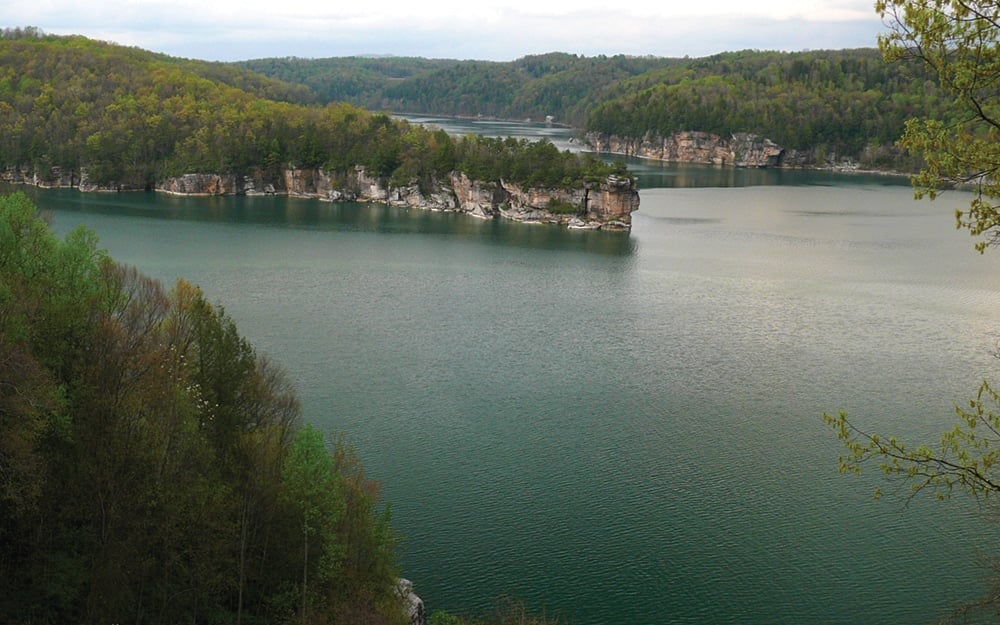
When state trooper Robert Adams transferred to the area in 1976, he quickly took up shore diving, eventually opening a scuba shop on highway 19, before moving it to its current location at Summersville Lake marina (where it floats almost imperceptibly atop the water). Today Sarge’s is owned by brothers Mark and Eric Allen, who bought the shop from Adams in 1990. A former science teacher, Mark tells me the shop has never made much money, but he was used to that. “In West Virginia, teachers don’t make shit,” he says. Instead, the dive shop was about fulfilling a passion. “I had wanted to dive since I was 9 years old,” he remembers. After moving to and getting certified in the Florida Keys, he planned to open a shop down South, but when a hurricane sent him home, helming the ship at Sarge’s seemed like the next best thing.
Mark, who has a lazy West Virginia drawl and a dry-as-dust sense of humor, says he hasn’t taken a vacation since then. Hasn’t drawn a paycheck from the diving, either. In the early days, the brothers did everything—slept on the floor to provide their own security, worked long hours in wet suits to maintain the submerged framework of the marina. But after he retired from teaching, he was finally able to devote his energy to growing the business. The outfit has since made a name for itself catering to public safety organizations and first responders, teaching everything from crime scene investigation and ice rescue to heavy salvage and lifting. Like many in the outdoor community, Mark says the pandemic was actually good for business, as record numbers of people visited to scuba dive Summersville lake during the summer of 2020. “My God, we were busy.”
The morning I arrived for a pleasure dive, the shop was brimming with lake-goers. Sarge’s is a decidedly do-it-yourself affair; no one’s going to carry your gear or offer you fresh fruit between dives. After I paid, I was sent to the back room to find the right wetsuit, pick my own weights, and lug my oxygen tanks to the waiting dive boat.
The dive group that day was varied—some of us were Summersville newbies, others were getting their monthly dive in. The gentleman next to me, a Bluefield native, had just returned from a diving trip to the Red Sea. Mark says that’s typical, that during the summer he gets big groups from Michigan and Virginia, Pittsburgh, and Columbus. “I talk to these guys regularly,” he says, “I see ‘em every year. They’re like family to me.”
Indeed, it felt familial. As we idled out of the marina, our captain, Luke, an economically built man with a blue ribbed tank top tucked tightly into his cargo shorts, cursed the last driver for leaving the gas tank empty. We stopped for fuel—and a bag of Doritos for Luke—while folks compared their underwater wish lists, buddying up for the dive. I was invited by two different groups to join them, one that planned to stay along the shore, the other more interested in going deep. I’ve been on a number of dive boats but never one so laid-back, so laissez-faire.
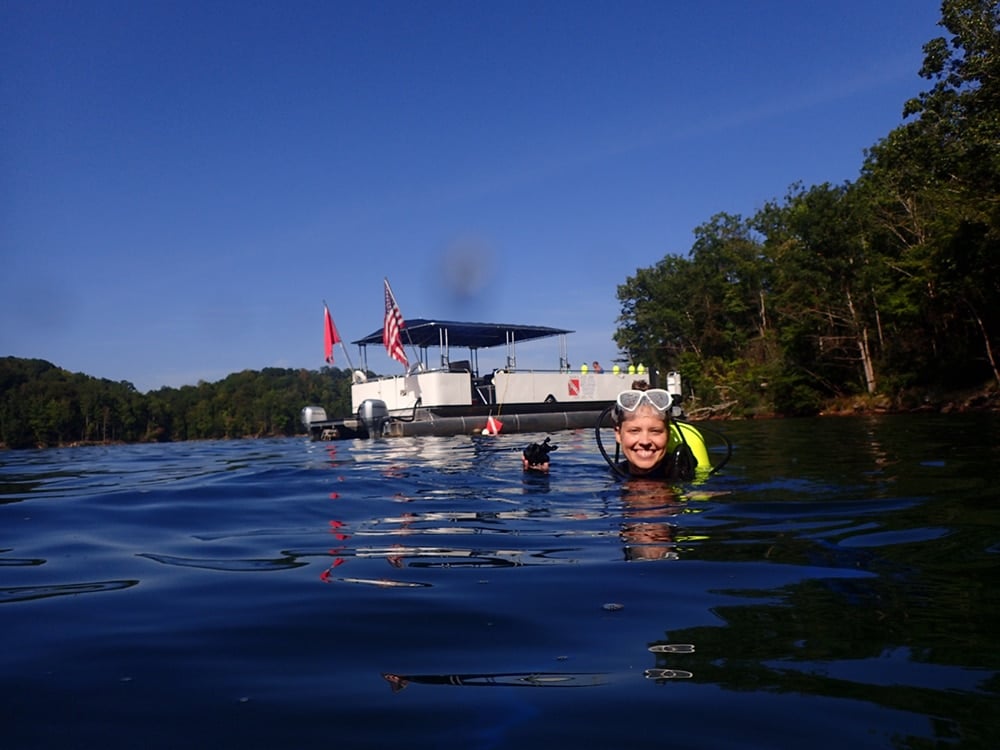
Those in the know steered us first to Copperhead and the Horseshoe Cove. The former offered a vertical sheer of about 75 feet. With our flashlights we peered into crevices filled with crappy. We fingered through detritus on the bottom, hoping we’d come across artifacts from the submerged valley towns below. Mostly we just found rusty beer cans. As the whir of boat engines whined in our ears, we watched a couple of small-mouth bass eye us with suspicion. At the next dive site, we swam around and through massive rocks: a mighty boulder field that once crowned this mountain. Scuba diving is always about seeing a different world, but in West Virginia it was more about seeing this world from a different angle. That’s what the guys at Sarge’s are offering—no plane ticket or PTO necessary.
In the parking lot after the dive, I saw the man who had recently returned from a dive trip in Egypt. I ask him how the two compare.
“Well, this one is an hour from my house.”
